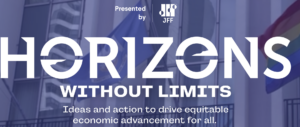WI Welfare is to LA Edu-Employment Bargain?
All Hess all day at EdReformer. In addition to his greenfield article debuting today, Rick wrote an EdWeek tome yesterday bemoaning all the things that could go wrong with rapidly drafted laws the goal of improving teacher evaluation and winning a RttT grant. As he loves to do, Hess points out pitfalls of RttT and the “impatient rush to “fix” teacher quality in one furious burst of legislating is leading to troublesome overreaching and putting the cart before the horse.”
Rick and I both see the value in a couple great state models that get the edu-employment bargain right–attractive starting salaries, performance-based evaluations, better pay for better performance, and multiple advancement opportunities. Wisconsin helped redefine the countries approach to welfare by piloting a new system. We need a few states to do the same thing in education for teacher effectiveness.
Where Rick and I differ is that we need a couple states to enact a new teacher effectiveness framework as part of their Race to the Top bid. If we don’t use this $4b grant program to force the change we’ll miss a once in a generation opportunity. What I think Rick misses in his argument is that school boards don’t face a fair fight. The sit across the table from very well funded and organized representatives. It’s not like teacher effectiveness will evolve out of enlightened dialog at the bargaining table in 15,000 districts. A few states will need to use the promise of RttT grants to pass bills that reframe the debate for the decade to come.
Louisiana HB1033 and Colorado SB 10-191 represent thoughtful steps forward toward an edu-employment bargain that increases the likelihood that low income kids will have good teachers and that the sector will be more attractive for young people looking for a place to contribute. Louisiana and Colorado have the potential to serve the same role in education that Wisconsin did in welfare reform–and it is precisely because the acted now that will make all the difference in the decade to come.






0 Comments
Leave a Comment
Your email address will not be published. All fields are required.